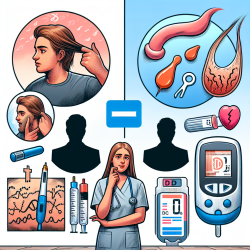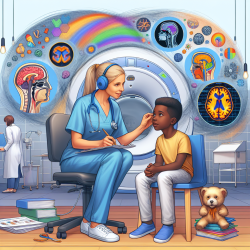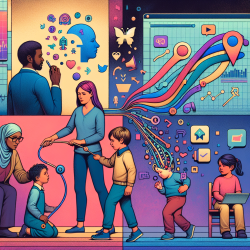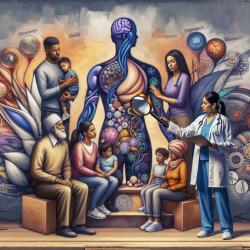Introduction
In the field of speech-language pathology and therapy, understanding the multifaceted needs of our clients is crucial. One such complex interaction is between mental health disorders and physical health conditions, such as the link between trichotillomania and diabetic ketoacidosis (DKA). A recent study titled Severe Trichotillomania: An Unusual Trigger of Recurrent Diabetic Ketoacidosis sheds light on this unique interaction and offers insights for practitioners looking to enhance their therapeutic approaches.
Understanding the Study
The study presents a case of a young male with type 1 diabetes who experienced recurrent episodes of DKA, a life-threatening complication of diabetes. Interestingly, the trigger for these episodes was identified as severe trichotillomania, a mental health disorder characterized by the compulsive urge to pull out one's hair. This behavior compromised the skin barrier, leading to increased susceptibility to infections and, consequently, DKA.
For practitioners, this case highlights the importance of considering mental health conditions as potential contributors to physical health crises. It underscores the need for a holistic approach to patient care, where mental and physical health are addressed in tandem.
Implications for Practitioners
As practitioners, integrating the findings from this study into practice can enhance patient outcomes. Here are some actionable steps:
- Adopt a Multidisciplinary Approach: Collaborate with psychologists, psychiatrists, and other healthcare professionals to provide comprehensive care that addresses both the mental and physical health needs of patients.
- Screen for Mental Health Disorders: Regularly assess patients with diabetes for signs of mental health disorders, such as trichotillomania, which may exacerbate their physical health conditions.
- Implement Cognitive Behavioral Therapy (CBT): Encourage the use of CBT and habit reversal training to help patients manage compulsive behaviors associated with trichotillomania.
- Educate Patients and Families: Provide education on the potential interactions between mental health and diabetes management to empower patients and their families in managing their health.
Encouraging Further Research
While the study provides valuable insights, it also opens the door for further research. Practitioners are encouraged to explore the following areas:
- Investigate the genetic markers and pathophysiology underlying the link between trichotillomania and diabetes.
- Examine the effectiveness of various pharmacotherapies in managing trichotillomania in diabetic patients.
- Explore the impact of comprehensive mental health interventions on the frequency and severity of DKA episodes in diabetic patients.
Conclusion
The case of trichotillomania triggering recurrent DKA highlights the intricate relationship between mental and physical health. For practitioners, embracing a holistic approach that integrates mental health care into diabetes management is essential for improving patient outcomes. By doing so, we can better support our clients in achieving optimal health and well-being.
To read the original research paper, please follow this link: Severe Trichotillomania: An Unusual Trigger of Recurrent Diabetic Ketoacidosis.










